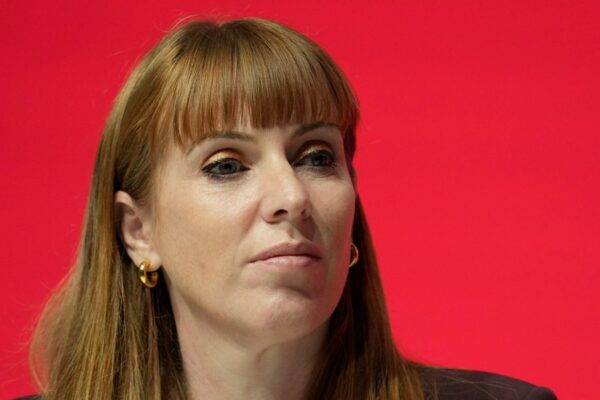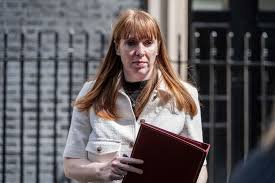
Angela Rayner May Be Off the Frontline But She Remains a Force in the Labour Party – Analysis
Angela Rayner’s resignation marks a profound loss for Sir Keir Starmer’s government — a fact made all the more apparent by the prime minister’s deeply personal, handwritten letter to his former deputy. Her departure was not something he wanted, and it is clear he regrets it. Rayner was more than just Starmer’s deputy; she was a powerful figurehead on the Labour left, a symbol of working-class representation, and a political asset who lent credibility to Starmer’s centrist project in parts of the party that might otherwise have dismissed it. Her exit from government — triggered by her failure to pay the correct amount of stamp duty on her second property — leaves a significant gap. While Sir Laurie Magnus, the prime minister’s standards adviser, found she breached the ministerial code, he acknowledged that she acted with integrity and had shown dedicated public service. Despite her misstep, Rayner remains a politician of considerable stature. Though she is wounded politically, her move to the backbenches does not mean she is out of the picture. If she chooses to rebuild her political career, she could emerge as a renewed and compelling voice in the party. Her roots in the trade union movement and her status as a self-made figure — from teenage single mum to deputy prime minister — still resonate deeply with Labour members and supporters. Whether she seeks a return to the frontline or carves out a new role, she remains influential. While there is no indication that Rayner will become disloyal to Starmer, her presence alone could shape the party’s direction. She is a figurehead, whether she wants to be or not. The optics of her departure are challenging. It allows political opponents to question Labour’s commitment to tax fairness at a time when property taxes may be on the table in the next Budget. And her resignation has also triggered a deputy leadership race — an elected role — which could expose divisions between Labour’s left and centrist factions. As the saying goes: divided parties don’t win elections. Labour will now have to navigate a visible and likely contentious contest to replace Rayner — a reminder that internal tensions still simmer beneath the surface of Starmer’s leadership. Yet, amid the upheaval, the prime minister appears to be using this crisis as a moment to reset. In a bold and sweeping reshuffle that caught even serving ministers off guard, Starmer overhauled his top team. Chancellor Rachel Reeves remains in post, but key figures have been reassigned, and the leadership’s tone has shifted. Shabana Mahmood has been appointed Home Secretary with a mandate to tackle the small boats crisis, and Pat McFadden, a close Starmer ally, now leads a new super-ministry focused on welfare and employment. David Lammy, Starmer’s longtime friend and former campaign manager, has been elevated to Deputy Prime Minister. Jonathan Reynolds has become Chief Whip — a key post for a leader navigating tricky backbench relations. A senior Labour figure described the reshuffle as the beginning of a tighter, more trusted inner circle — a sort of “kitchen cabinet” designed to offer the prime minister reliable counsel and consistent political support. “What he needs are politicians he feels comfortable with,” one insider said. “This is about the PM reaching for the right kind of support and a team he trusts and can rely on.” Angela Rayner may no longer sit around that table, but her influence in British politics has not vanished. Her future on the backbenches could shape the party’s next chapter, especially if she chooses to fight her way back. For Starmer, this reshuffle represents a gamble — a necessary act of decisiveness for a leader often criticised for caution. Whether it will restore momentum and political strength remains to be seen. But for now, Rayner’s absence is a powerful reminder of both the fragility of public trust and the volatile nature of political life — where even the most compelling figures can fall, only to potentially rise again.


